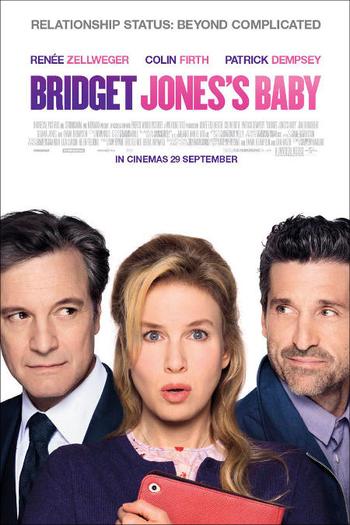Bridget Jones’s Baby stars Renée Zellweger as the titular Bridget Jones. Throughout the course of the story, Bridget has sex with a former lover and a new interest, only to find out that she is pregnant. The major plot line focuses on the big question: Which of the two men is the actual father? Is it the old standby with the history? Or is it the newer and younger flame?
What comes across from the trailers is a movie full of cliché, tacky one-liners and annoying characters.
It can safely be reported, that Bridget Jones’s Baby falls into neither of these presupposed traps. The dialogue is witty, with alot of fun little insights into what characters may really be like, or may be feigning in order to win Bridget’s hand.
The two men, while clearly a marketing trap for women of all ages to come and see the film, are well thought-out and charmingly wonderful.
They come off as honest portrayals of two different men both confronting a point in their lives that can either be defining or defeating.
As an audience member, you don’t necessarily pity Bridget having to choose between the two of them. The idea of it is something that most can relate to either in fantasy or in more applicable choices such as what to have for dessert. You’re not going to regret choosing one, but you wish you didn’t have to.
Another part of Bridget Jones’s Baby that really struck me was the premise.
With a seemingly similar plotline to an episode of The Bachelorette, Bridget Jones’s Baby may put off a more critically thinking audience due to a fear that there will not be any depth to this idea.
However, the premise feels organic; Bridget comes off as her own person, being able to explore her sexuality comfortably without judgment. Of course, this results in pregnancy, but the consequences are not one of negativity and there is never any real thought of (outside of the ultimate choice) the pregnancy being a problem.
This is a refreshing take in a genre mostly pegged for sticking to long-standing film confines of how a woman is supposed to act and what she is supposed to be like, especially within the romantic comedy genre.
As far as the acting is concerned, Renée Zellweger plays the part well, being confident in her age and exploring what it means to have grown old but still maintain self-beauty.
That being said, Zellweger’s somewhat obvious plastic surgery runs against this portrayal, but as the audience becomes more comfortable with the characters and world of the film, it becomes less and less of a problem.
Patrick Dempsey plays the charming and sarcastic Jack with precision. He seems to knowingly address the camera with his self-confidence in his sex appeal to the female audience.
Colin Firth’s Mark also has an awkward charm and seems to be someone who is well-intentioned in his quest for Bridget’s love.
If I had to make any complaint, I’d say that overall, the movie is a little plain in how it’s shot.
It seems that in modern popular film, a candy gloss coat is necessary for anything to be believable. There are a lot of over-lighted scenes, visible applications of makeup, and hastily designed sets.
The film may have a believable story, but it feels as though the film wants us to believe it is like a fairytale. It feels a little insincere, and honestly, it comes off as though it really doesn’t care about its own audience.
In conclusion, I’d say that Bridget Jones’s Baby may seem like it’s specifically targeted toward a female audience, and it is, but that doesn’t mean that any men who end up in the theater won’t at least enjoy parts or all of the movie. It’s a really decent romantic comedy with enough fun for most or all people to enjoy.
